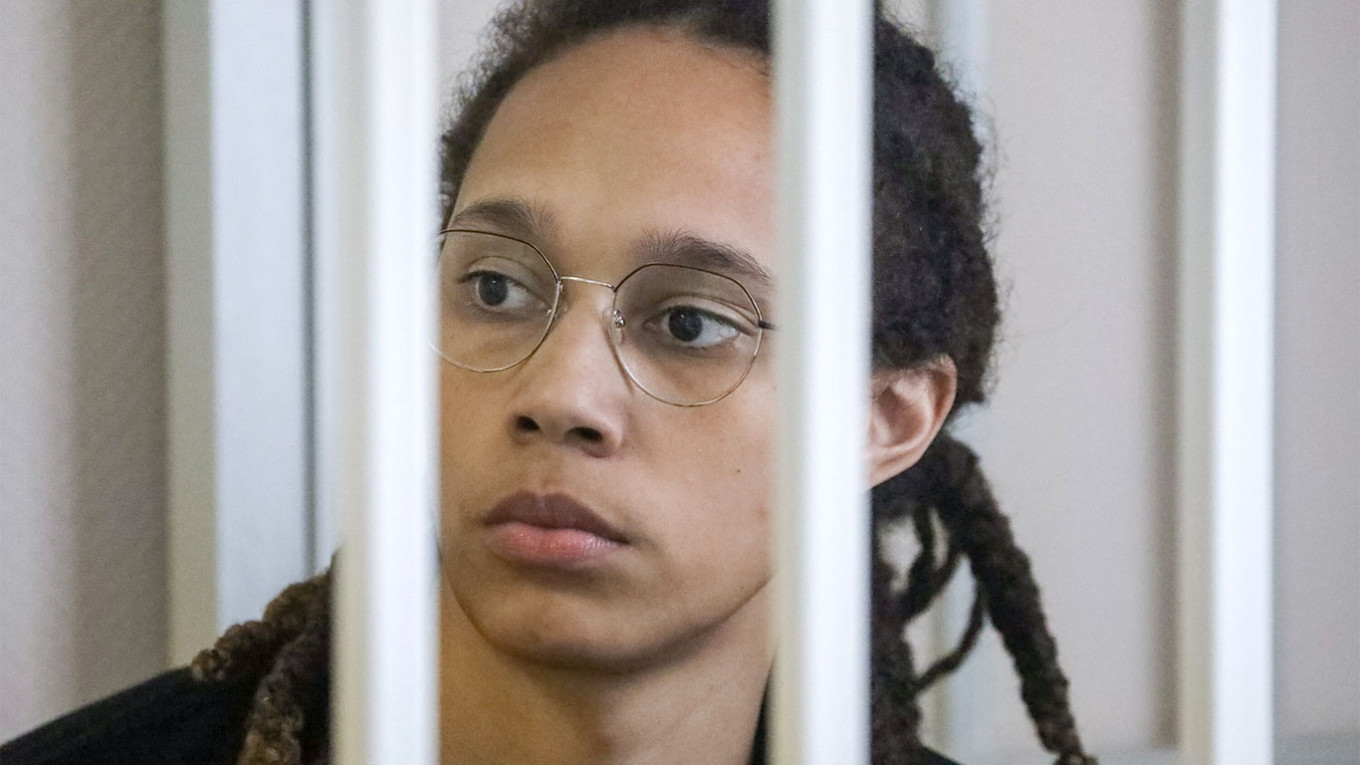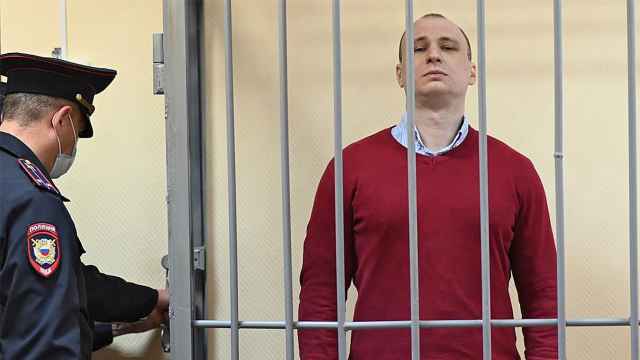Russia is moving detained U.S. basketball star Brittney Griner to a penal colony, her lawyers said Wednesday, drawing a sharp rebuke from the White House.
Griner, convicted for possession of a small quantity of cannabis oil, was transferred out of a detention center on Nov. 4, her legal team said.
She "is now on her way to a penal colony," lawyers Maria Blagovolina and Alexander Boykov said in a statement.
They said that Russia generally sends notifications of transforming prisoners by mail, taking up to two weeks.
"We do not have any information on her exact current location or her final destination," they said.
Griner's case has drawn outrage in the United States, with Secretary of State Antony Blinken reaching out to Russia to propose a deal to free her despite soaring tensions over Moscow's invasion of Ukraine.
White House Press Secretary Karine Jean-Pierre reiterated that the United States had put forward a "substantial offer" to Russia to resolve her case.
"Every minute that Brittney Griner must endure wrongful detention in Russia is a minute too long," Jean-Pierre said in a statement.
"As the administration continues to work tirelessly to secure her release, the president has directed the administration to prevail on her Russian captors to improve her treatment and the conditions she may be forced to endure in a penal colony."
Griner, a two-time Olympic basketball gold medalist and Women's NBA champion, had been in Russia to play for the professional Yekaterinburg team during her off-season from the Phoenix Mercury Women's National Basketball Association side.
She said the cannabis in vape cartridges was to treat pain from her sporting injuries, but Russia does not allow medical marijuana use.
Reports have suggested that Griner and another American jailed in Russia, Paul Whelan — a retired U.S. Marine arrested in December 2018 and accused of spying — could be traded for Viktor Bout, a famed Russian arms trafficker serving 25 years in prison on a 2012 conviction.
A Message from The Moscow Times:
Dear readers,
We are facing unprecedented challenges. Russia's Prosecutor General's Office has designated The Moscow Times as an "undesirable" organization, criminalizing our work and putting our staff at risk of prosecution. This follows our earlier unjust labeling as a "foreign agent."
These actions are direct attempts to silence independent journalism in Russia. The authorities claim our work "discredits the decisions of the Russian leadership." We see things differently: we strive to provide accurate, unbiased reporting on Russia.
We, the journalists of The Moscow Times, refuse to be silenced. But to continue our work, we need your help.
Your support, no matter how small, makes a world of difference. If you can, please support us monthly starting from just $2. It's quick to set up, and every contribution makes a significant impact.
By supporting The Moscow Times, you're defending open, independent journalism in the face of repression. Thank you for standing with us.
Remind me later.






